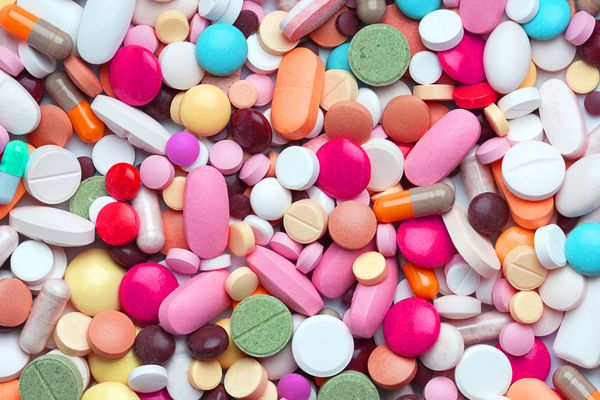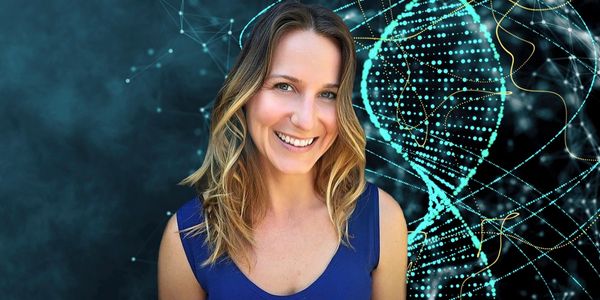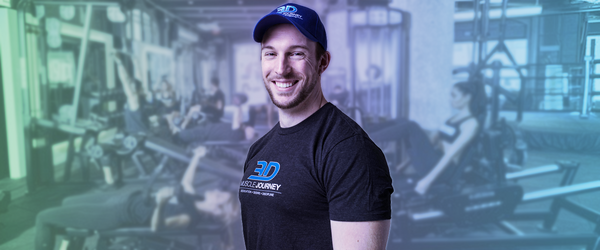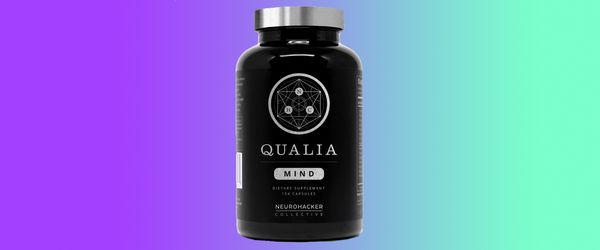Jon Brooks • • 13 min read
The No Bullshit Guide to Vitamins: 8 Supplements You Actually Need

We don’t want to be healthy.
We want to be SUPER healthy.
We don’t just want to score well on our medical tests, we want to be the best the doctors have ever measured.
Good enough just isn’t good enough anymore.
We all want to be OPTIMAL.
This need to be optimal is just a fancy repackaging of our innate desire to be good at the things we try. We’ve always been this way. What’s changed are the things we’re trying to be good at.
There was a time when you just went to bed, woke up, and you either had a good nights sleep or you didn’t. Now, with an iPhone app, you can measure the movements you make in your sleep and get a ‘Sleep Quality Score’ at the end.
I thought I was good at sleeping until I used that app. When I woke up with a 60% sleep quality score that soon changed.
The media makes things worse by constantly reminding us, like a smug personal trainer, of all the new ways we could be more optimal. New ways to prevent cancer, new ways to improve heart health, new ways of realising how stupid we are.
“Fish oil causes brain power.”
“Fish oil causes heart health.”
“Fish oil causes prostate cancer.”
The only thing fish oil causes is confusion.
That was a joke, fish oil is actually amazing. But we’ll get to that in a bit.
When I first started studying nutrition and physiology, like most of the general public, I found it really confusing. There is so much contradictory information — even coming from the same sources.
I used to buy health magazines. One week a particular food was said to be good for losing weight, the next gaining weight. I had to keep buying those magazines because I felt terrified that my current diet would suddenly be proven unhealthy.
It might not surprise you that confusion is actually a classic technique used by hypnotists. When we’re confused we’re more suggestible to incoming influences.
“In all my techniques, almost all, there is a confusion.” – Milton H. Erickson, Hypnotherapist
The strange thing about the companies who provide products to try and help us feel more optimal is that they depend on us feeling sub-optimal to sell them.
Acne is a problem insofar as it tends to negatively affect self-esteem. Yet the companies that manufacture face washes to improve your self-esteem, market them in such a way that actually destroys it.
The classic example is that where popular YouTube prankster, VitalyZDTV, puts fake acne on his face and fails to pickup a girl. Then later on removes the fake acne and gets her phone number. At the end of the video a Clearsil Ultra sponsored link is shown, indicating Clearsil’s invested interest in making acne sufferers feel unattractive to women.
Friends or foes?
Now, I’ve got to clear a few things up myself (excuse the pun). There is nothing wrong with wanting to be optimal. High Existence is all about being more optimal. Truth be told, I love tracking my sleep and nutrition and finding novel ways to improve all aspects of my life. Like I said, the desire to be optimal is really just the healthy drive to be competent at what we do.
All I’m concerned about is how we go about doing it…
There are countless horror stories of people ruining their health and appearance because of misinformed supplement information. We know that the vitamin and supplement industry has a financial interest in us buying their products. We know they use psychological ploys to confuse us and push our buying buttons.
So in knowing this, how can we make good decisions to be more optimal with our vitamin supplementation?
Before we ask: which vitamins should I take?
The first question should be: who can I trust when it comes to supplement information?
Optimalism Re-Examined & The Multivitamin Myth
There is really only one answer to that question: Examine.com
Examine.com doesn’t just scientifically break down supplement evidence into easy to understand tables and summaries. It tells you the effectiveness of a supplement, how to take it, what to combine it with for extra effect, how reliable the evidence is, what health goals it can help you achieve, and basically everything else you’d ever need to know.
Fitness expert and NYT Bestselling author, Adam Bornstein, says:
“In many ways, the fitness industry is broken. And among the many people trying to fix the biggest issues, examine.com is a big part of the solution. They provide no-nonsense, accurate information that can help a beginner as much as it can someone who has been living a fit lifestyle for years. Their accuracy and credibility makes them invaluable.”
So now that we have our trusted un-biased source of supplement information let’s ask that question…
What vitamins should I take?
There are lots of conflicting opinions on this question. Adverts have us think we need them for optimum health, scholarly articles like ‘Enough Is Enough: Stop Wasting Money on Vitamin and Mineral Supplements‘ have us think they actually cause us harm, and passionate rebuttals to these anti-vitamin articles by biology experts like Dr. Rhonda Patrick have us scratching our heads over who to believe.
Thankfully, Examine.com sums it up the evidence pretty succinctly for us:
“The idea of taking a pill that contains all of the vitamins and minerals to better one’s health does not appear to be supported by the literature. However, it does not appear to be significantly harmful either.”
This is a really diplomatic was of saying, “Multivitamins do nothing. Spend your hard earned cash on things that work”.
Examine, in their 1,200 page and growing, Supplement Goals Reference Guide, explain the four main reasons multivitamins are useless:
- The RDA (recommended daily allowance) isn’t always optimal. In fact, it’s usually just the minim to avoid ill health.
- Foods are already fortified with vitamins and minerals — taking an unspecified multivitamin on top can lead to overdose.
- Trying to get everything you need in one pill per day is like trying to get all your food for the day on one plate.
- There are many healthy compounds that aren’t vitamins and would be missing from a multivitamin.
Examine.com don’t say vitamins and minerals are bad. They’re saying the lazy one-size-fits-all approach to supplementation is flawed.
We need vitamins, but not multivitamins.
So with that in mind I’m now going to list a set of recommendations for what vitamins you might want to take. I’ve split them up into The Essentials, The Context Dependents and The Smart Investments.
It should go without saying that this information is only useful if you have some semblance of a balanced diet. If all you eat, all day, everyday, is table sugar, or for that matter spinach, and nothing else, you’re clearly going to have deficiencies. But, outside the world of My Strange Addiction, most people shouldn’t have this problem.
The Essentials: Vitamin D & Vitamin K
These are vitamins everyone should be taking regardless of their health goals.
Vitamin D
Examine.com definition: Vitamin D is an essential vitamin known as the sunlight vitamin, since it is synthesised in the skin when exposed to the sun’s radiation. It provides benefits for bone structure support, mood state, and much more.
Vitamin D has been shown to reduce the risk of dementia by 125%, half the chances of getting colorectal cancer, significantly improve functionality in the elderly and is solely responsible for over 1000 functions in the human body.
Oh yeah, it’s also the most widespread deficiency in the developed world.
Pretty much everyone needs to be supplementing with Vitamin D because it’s practically impossible to get at sufficient doses without supplementation.
The only way you’re really going to get optimal levels of vitamin D, without supplementing, is to spend about 30 minutes in the sun each day naked. Even if you live in place that allows you to do this we all know excess sun exposure puts you at high risk for skin cancer and premature ageing. It’s not worth it.
Vitamin D is also necessary for proper calcium absorption.
The RDA for vitamin D is 400-800 IU (IU means international units), but the optimal levels for most people will typically fall between 2,000 – 5,000 IU.
Examine.com recommends you take 2,000 IU daily. It’s cheap, and you can buy it in large quantities.
To get Examine.com’s recommended 2,000 IU of vitamin D-3, this is a good option.
Vitamin D is fat-soluble so take it with some fat, any ordinary meal will usually have some.
Vitamin K
Examine.com definition: Vitamin K is an essential vitamin found in plants or produced from intestinal bacteria. It plays an essential role in bone health and regulates blood clotting.
This is new one for me and I wouldn’t have known about it had I not read the Supplement Goals Reference Guide.
There’s some solid evidence that optimal levels of vitamin K improve bone mineral density, lessen bone fracture risk, reduce cancer mortality, prevent cardiovascular mortality, and alleviate reddening of the skin. If you have dark circles under the eyes then vitamin K can also help with that too by removing circulating blood from the skin’s surface.
According to Examine.com, most people are able to hit the 50mcg RDA for vitamin K with the help of fortified foods and the occasional dark leafy green. However, to get the benefits I just listed, you need closer to 1000mcg of vitamin K.
Yeah that’s 20 times more.
There are two types of vitamin K: vitamin K1 and vitamin K2.
I take this vitamin K supplement daily. It has adequate levels of both K1 and K2 to cover all the bases.
Like vitamin D, you’ll want to consume it with some fat and preferably some vegetables for maximum absorption. Vitamin K also works synergistically with vitamin D to keep your arteries de-calcified and clear.
The Context Dependents: Calcium, Iron, Magnesium, Zinc, Fish Oil
These are minerals, with the exception of fish oil, that some of you might need to take, but some of you won’t. If you are deficient in any of these compounds then it is advisory you correct this.
Calcium
Calcium is an essential mineral for survival and health. You probably know a bit about its bone and teeth benefits. It also boosts fat excretion and testosterone which is a nice bonus for the weightlifters among us.
Calcium deficiencies are more prominent in the elderly, especially when coupled with a low-dairy diet. If you drink milk, take protein powder, eat cheese, nuts, and fortified breakfast cereals on a daily basis you probably don’t need to supplement with calcium.
For those who suspect deficiencies, Martin Berkhan, author of Leangains.com, advises you add a 500-750mg supplement to your diet to hit the optimal range.
I don’t take calcium myself, but this is the supplement I recommend to my clients. It’s 500mg.
Iron
Iron deficiencies are surprisingly common but because excess iron can be toxic, extreme deficiencies are usually handled by medical doctors. Those most at risk from iron deficiencies are pregnant women, blood donors and those who have a diet devoid of meat and vegetables.
Anaemia, which is often caused by iron deficiency, can cause hair loss, paleness, shortness of breath and lethargy. If you’re unsure if you have iron deficiency you can track your food over a few days on My Fitness Pal to see if you’re hitting the RDA.
If you’re not hitting your iron, adjust your diet with iron-rich foods like red meat, dark leafy greens, poultry and iron-fortified cereals. If for whatever reason you can’t do this, see a doctor for a blood test and find out exactly how much iron you need to supplement with.
If you feel as though you’re deficient in iron, and don’t have a serious medical condition use this safe dose iron supplement to get your levels up and monitor any improvements.
Magnesium
Examine.com definition: Magnesium is a dietary mineral. Magnesium deficiencies are the second most common deficiency in developed countries, the first being Vitamin D. A lack of magnesium will raise blood pressure and reduce insulin sensitivity.
Getting optimal levels of magnesium will help improve blood pressure, asthma, insulin sensitivity, sleep quality, bone mineral density, migraines and potentially a lot more.
If you eat a lot of nuts then you probably don’t need to worry about being deficient in magnesium. If you don’t eat many nuts and you don’t want to start (they have lots of calories), then you can supplement 200-400mg each day with a meal.
I don’t take magnesium because I eat nuts. If I’m on a diet, however, I do supplement with it because I don’t want the high calorie nuts.
Get the perfect 400mg dosage of magnesium magnesium from a trusted source, click here.
Zinc
Examine.com definition: Zinc is an essential mineral involved in regulating many enzymes. It is an antioxidant and immune-boosting supplement. Zinc is most commonly supplemented to reduce the frequency of illness and to support optimal levels of testosterone.
Optimal levels of zinc are important for regulating testosterone, insulin, and blood glucose. It is also linked to improving acne, psoriasis, depression, viral warts, cognition and subjective well-being.
You probably won’t need to supplement with zinc unless you’re active person and you sweat a lot. If you workout regularly then you might want to look into supplementing with it. Because I workout regularly, I take it.
To get the recommended 50mg of elemental zinc, this product is the best I’ve found.
Oysters will also help give you the zinc you need but, last time I checked, they aren’t a regular part of most people’s diet.
Omega 3 Fish Oil
Examine.com definition: Fish oil is a general health supplement, and is taken as a source of omega-3 fats. It is not needed if one eats enough fatty fish.
Adequate amounts of omega 3 fish oil will help reduce blood pressure, inflammation, triglycerides, anxiety, stress, depression and delayed on-set muscle soreness (DOMS).
Foods that contain high amounts of omega 3 include: red salmon, mackerel and sardines.
Most people who supplement with omega 3 don’t get enough of the active ingredients EPA and DHA. The only thing that really matters in a fish oil capsule are these active ingredients.
You need about 3g of EPA and DHA combined each day. The typical fish oil supplement only contains 180mg of EPA and 120mg of DHA. In order to get the 3g total you’d need to take 10 everyday.
This is my favourite omega 3 supplement. It’s super high strength and has a flavour to prevent the dreaded ‘fish burps’. Take 5 daily. If you’re quite small / light, take 3.
Fish oil are fats so you can combine your vitamin D and vitamin K to get better absorption all round.
The Smart Investments
These supplements are not things you’re likely to be deficient in, but they’re cheap, helpful and well researched. I usually recommend these supplements to people who consider achieving and maintaining optimum health a hobby.
Whey Protein
Most people when asked if they drink protein shakes reply with, “No, I don’t want to be a bodybuilder.” The connection between bodybuilding and protein supplements makes sense. They’ve been used as a muscle building aid for years. However, bodybuilders aren’t the only ones who can benefit from whey protein.
Whey protein is not a steroid. It doesn’t grow muscle. Whey protein isn’t really a supplement any more than butter is a supplement. Whey is just the watery part of milk that gets left over after it’s been curdled and strained. Whey protein is a food.
Per gram of protein whey is cheaper than meat and has a better amino acid profile. It’s one of the highest quality protein sources available.
According to examine.com, the RDA for protein is, “Usually the lowest recommended estimate”. As we age one of the first things to go is muscle mass. I’m not talking about your biceps, I’m talking about skeletal muscle — the stuff that helps you move about. As we age it’s paramount we keep our protein levels in the optimal range to stop this from happening.
Furthermore, protein is the most satiating macronutrient. It helps stabilise blood sugar, prevents muscle loss when dieting and increases our rate of protein synthesis from consumption alone. Protein helps you recover not just from hard workouts, but from life’s hard knocks. Our body repairs itself primarily with protein.
And the best part is, the stuff tastes a lot like a dessert, but without the added sugar.
Most people will want about 0.8 grams of protein per pound of lean body mass (how heavy you’d be if you had abs). If you’re especially active or dieting, going a little higher might be beneficial.
Nutrition companies have been found in recent years to be dishonest about their product labelling. Some whey protein products have been found with much less protein than advertised. This is why it’s important to buy from a trusted source.
My favourite whey protein is Optimum Nutrition Gold Standard. It tastes unbelievably amazing (check product reviews) and has been rigorously tested in a lab for proof of its quality. Check out the range flavours here…
Creatine
Creatine is most famous for its ability to improve power output in athletes. If you’re a regular gym goer creatine will help you squeeze a few extra reps out because it saturates your muscles with a compound called ATP — the biological currency of energy in the body.
However, creatine isn’t just for athletes. My mother takes creatine every day. Creatine has been extensively studied and it has some pretty amazing benefits.
Kurt Frank, the editor of examine.com, says about creatine:
“It’s safe, it’s healthy, it’s cheap, and for most people, it just works. Get some Creatine Monohydrate, take 5g a day, and you’re good to go.
If humans didn’t make any in the body, this thing would be a vitamin. There do exist deficiency symptoms that result in mental retardation. They’re rare, but they pretty much establish the importance of this molecule as a vitamin-like compound.”
Creatine has neuroprotective and cardioprotective qualities. Studies show its promising benefits with muscle damage, cancer prevention and depression in females. The theory is, if you supplement with creatine your cells will be saturated with more energy and live longer. Since everything in our body is made from cells I think creatine supplementation is a smart investment.
Creatine, when used in skin cream has even been shown to dramatically boost collagen synthesis. It’s definitely a supplement we could start to see a lot more of as time goes on.
I’d recommend taking 3 grams of creatine monohydrate every day for a few weeks. If there are no side effects, increase to 5 grams and take for the rest of your life.
This high quality creatine is the one I use, at 5 grams per day. I mix it in a protein shake usually, or just down with water.
What Vitamins Should I Take For…
– Testosterone Enhancement
– Fat Loss
– Muscle Gain & Exercise Performance
– Mood and Depression
– Heart Health
– Sleep Quality
– Insulin Sensitivity
– Memory and Focus
– Skin and Hair Quality
– Libido and Sexual Enhancement
– Liver Health
– Allergies and Immunity
– Bone Health
– Joint Health
– Vegetarianism/Veganism
This article is 3,350 words long and covers all the health bases when it comes to vitamin and mineral supplementation. You should now have a solid foundational idea what supplements you need to start taking and why.
But as you can see from the list above, there are other reasons to take supplements. Some of us have individual needs that reach far and beyond general health and vitality. I for one am also interested in fat loss, muscle gain and sleep quality.
So for those of you who have any of the specific needs listed above, I highly recommend you check out The Supplement Stack Guides over at Examine.com. In the stack guides, the researchers don’t just show you what’s proven to work and what isn’t, they give you clear instructions specific to you goals to help you get better health, a better body and a better life.
(Alternatively you can just click the image below to find out what all the fuss is about.)
In their stack guides they show you the proven and unproven supplements for every item on that list, insider recommendations, how to stack for exponential potency, plus you get life time updates to stay on top of the research forever.
This post is republished with permission of the original author.
This original can be found at ComfortPit.com

Jon Brooks
Jon Brooks is a Stoicism teacher and, crucially, practitioner. His Stoic meditations have accumulated thousands of listens, and he has created his own Stoic training program for modern-day Stoics.










